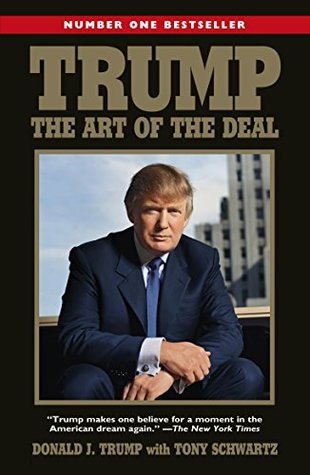More on this book
Community
Kindle Notes & Highlights
If you know what you are doing and you run your operation reasonably well, you can make a very nice profit.
My people keep telling me I shouldn’t write letters like this to critics. The way I see it, critics get to say what they want to about my work, so why shouldn’t I be able to say what I want to about theirs?
That experience taught me a few things. One is to listen to your gut, no matter how good something sounds on paper. The second is that you’re generally better off sticking with what you know. And the third is that sometimes your best investments are the ones you don’t make.
The other thing I do when I talk with reporters is to be straight.
The final key to the way I promote is bravado. I play to people’s fantasies. People may not always think big themselves, but they can still get very excited by those who do. That’s why a little hyperbole never hurts. People want to believe that something is the biggest and the greatest and the most spectacular. I call it truthful hyperbole. It’s an innocent form of exaggeration—and a very effective form of promotion.
I promoted the hell out of Trump Tower, but I also had a great product to promote.
I believe in spending what you have to. But I also believe in not spending more than you should.
The point is that you can dream great dreams, but they’ll never amount to much if you can’t turn them into reality at a reasonable cost.
“The most important thing in life is to love what you’re doing, because that’s the only way you’ll ever be really good at it.”
I punched my music teacher because I didn’t think he knew anything about music and I almost got expelled.
it’s not how many hours you put in, it’s what you get done while you’re working.
My philosophy has always been that if you ever catch someone stealing, you have to go after him very hard, even if it costs you ten times more than he stole. Stealing is the worst.
You can’t be scared. You do your thing, you hold your ground, you stand up tall, and whatever happens, happens.
If you want to buy something, it’s obviously in your best interest to convince the seller that what he’s got isn’t worth very much.
Sometimes, part of making a deal is denigrating your competition.
For example, in the face of a sales drop, most companies cut back on their advertising budgets. But in fact, you need advertising the most when people aren’t buying.
if you’re going to make a deal of any significance, you have to go to the top. It comes down to the fact that everyone underneath the top guy in a company is just an employee. An employee isn’t going to fight for your deal. He’s fighting for his salary increase, or his Christmas bonus, and the last thing he wants to do is upset his boss.
Realizing that the positive approach wasn’t working, we tried to play to their guilt and their fear and their sense of moral obligation.
When a reporter later asked me why I got a forty-year tax abatement, I answered, “Because I didn’t ask for fifty.”
It just shows you that sometimes making a deal comes down to timing.
good publicity is preferable to bad, but from a bottom-line perspective, bad publicity is sometimes better than no publicity at all. Controversy, in short, sells.
The worst of times often create the best opportunities to make good deals.
When you’re negotiating with people who’ve been promised the world a half dozen times and gotten nothing, credibility is critical.
There are times when you have to be aggressive, but there are also times when your best strategy is to lie back.
To me, it makes sense to put money in trust for your children, so they don’t inherit millions of dollars when they turn twenty-one.
By the time they finally showed up, around three-thirty, I was convinced that the only way I’d get the deal done was to shame them into doing it.
I NEVER HAD a master plan. I just got fed up one day and decided to do something about it.
If there’s one thing I’ve learned from dealing with politicians over the years, it’s that the only thing guaranteed to force them into action is the press—or, more specifically, fear of the press.
In developing real estate, it’s a whole different ball game. You can budget building costs, but you can’t truly project revenues, because you’re always at the mercy of the market. The variables include how much you get per unit, how long it takes to sell out, and what your carrying costs are along the way. The less you commit to spend up front, the less you’re at risk later.
In my life, there are two things I’ve found I’m very good at: overcoming obstacles and motivating good people to do their best work.


